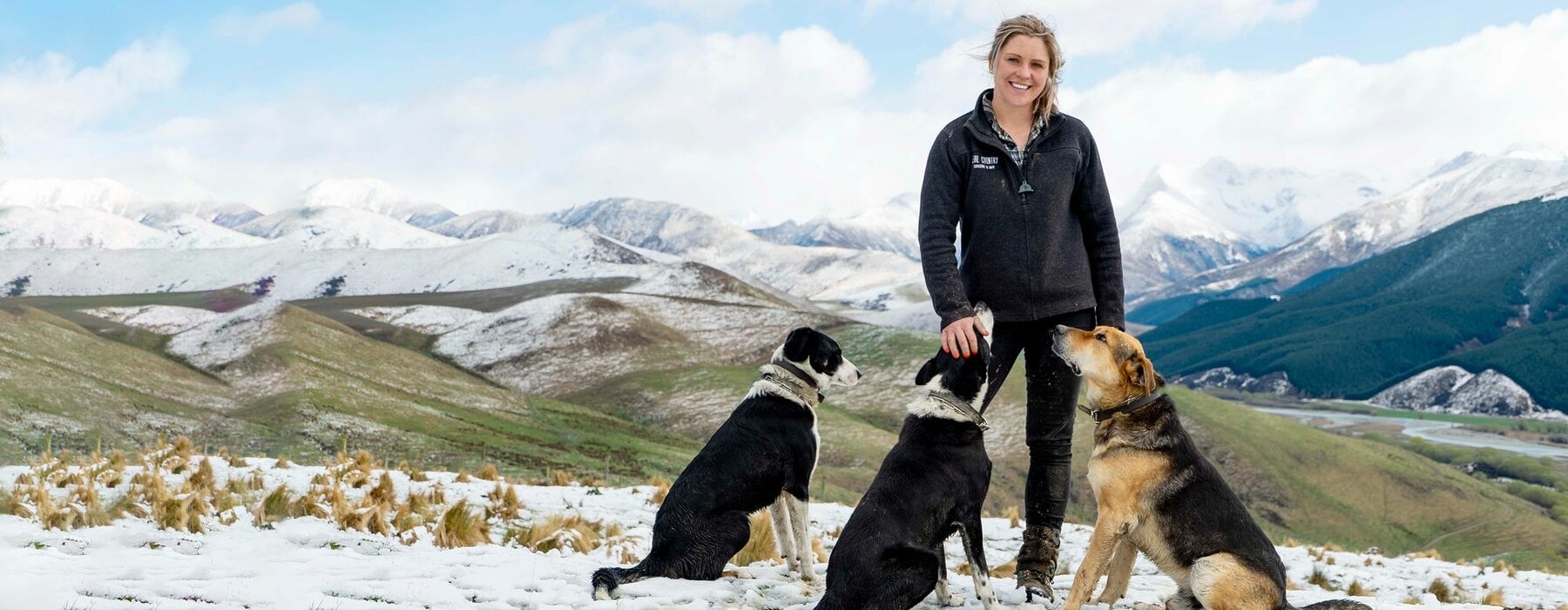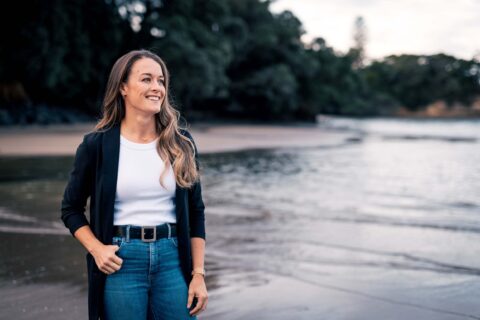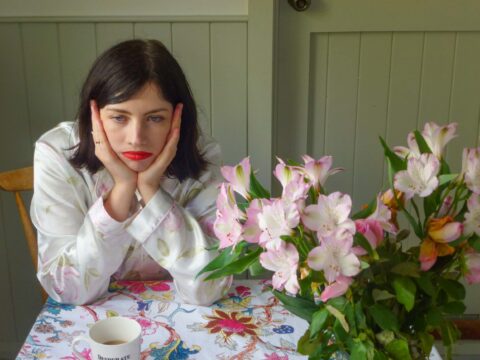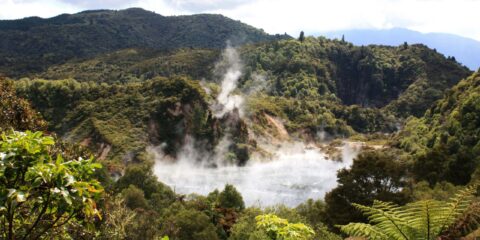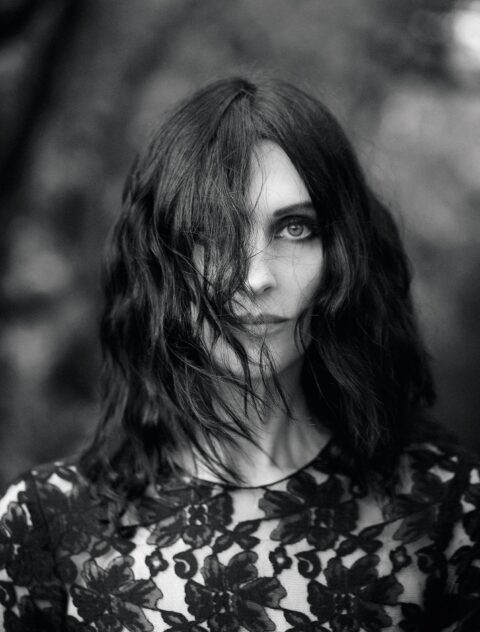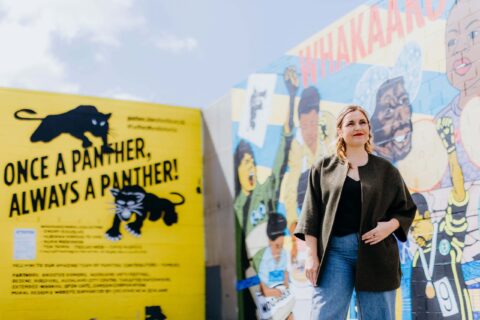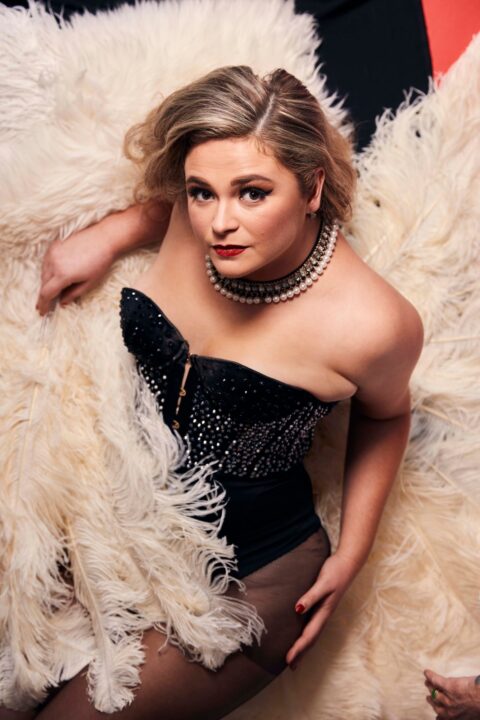Five years ago, Laura Koot swapped finance for farm life, and set up workshops to build women’s confidence while teaching them practical skills. Now, she tells Sharon Stephenson about her new training institute.
If you stand near the foot of The Remarkables, with the Mataura River at your back and the majesty of Otago’s impossibly green hills in front of you, you’ll probably spot Laura Koot to your right.
It’s unlikely Laura will be kicking back and enjoying the bucolic views. Instead, the 34-year-old will be mending fences, mucking out horses and reversing a fully loaded trailer – or teaching others how to.
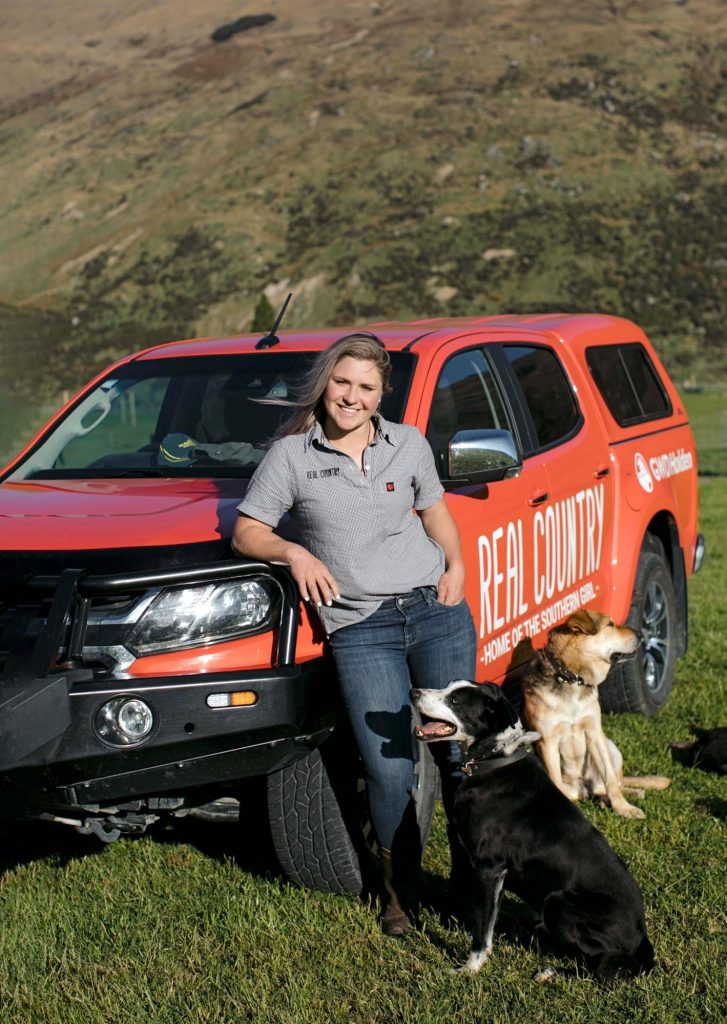
This is Real Country, the business she established in 2016 to share what she calls “the real New Zealand” and help women and girls build their confidence.
“I set up Real Country to teach practical skills to Kiwi girls and women,” says Laura, her conversation thick with the rolling Rs of the deep south. “Confidence isn’t something you’re born with, but it can be learnt. I’m living proof that if you’re doing unfamiliar tasks in a safe and fun environment, it can help build confidence.”
For some townies, those tasks could seem as outlandish as a date with David Beckham: jump-starting a tractor, cracking a stock whip and firing a rifle.
“It might be totally out of your comfort zone, but that’s the point. It’s about learning some handy new skills and having a blast while doing it,” says Laura of the one-day farm skills workshops she runs for women, as well as the ironically named Southern Girl Finishing School workshops for girls aged 11-16.
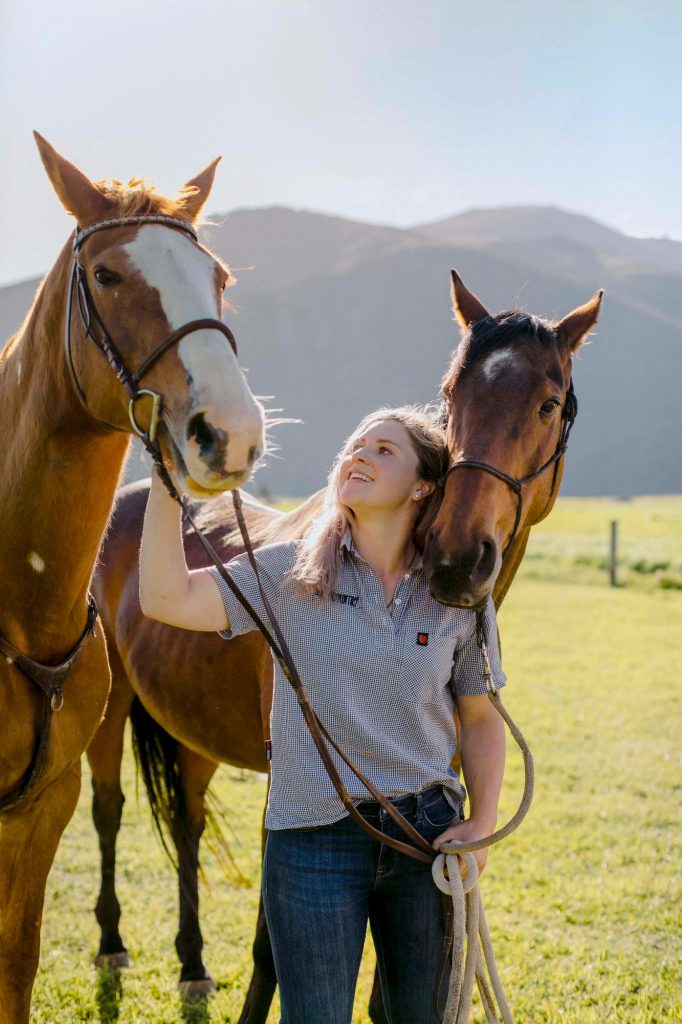
PHOTO BY EMILY ADAMSON
She also offers rifle shooting and deerstalking workshops that teach participants how to stalk, kill and butcher ducks and deer, as well as bush survival skills.
There’s clearly a need for the workshops, with Laura estimating that more than 200 people have signed up since she started.
“A generation ago, almost everyone had relatives who lived on farms, where you could spend holidays. But as New Zealand has become more urbanised, and fewer people are running farms, there’s now a huge divide between urban and rural Kiwis, with many townies unaware of how a farm operates or how important farming is to the New Zealand economy,” Laura explains. “I realised there was a real need for people, especially women, to get out of the city and feel the dirt under their feet and learn things they might never have thought they could do.”
The workshops are run from a 6000ha farm in Kingston, a settlement with a population of around 300 at the rump end of Lake Wakatipu, near where the borders of Otago and Southland meet. It’s just a five-minute drive from the house Laura owns with her husband Dan Koot, a 38-year-old self- employed builder. The farm belongs to her friend Tim Taylor, who leases part of his land to Laura’s agri-tourism business. It’s also where Laura grazes her two horses, a pony, two deer, six sheep and seven alpaca.
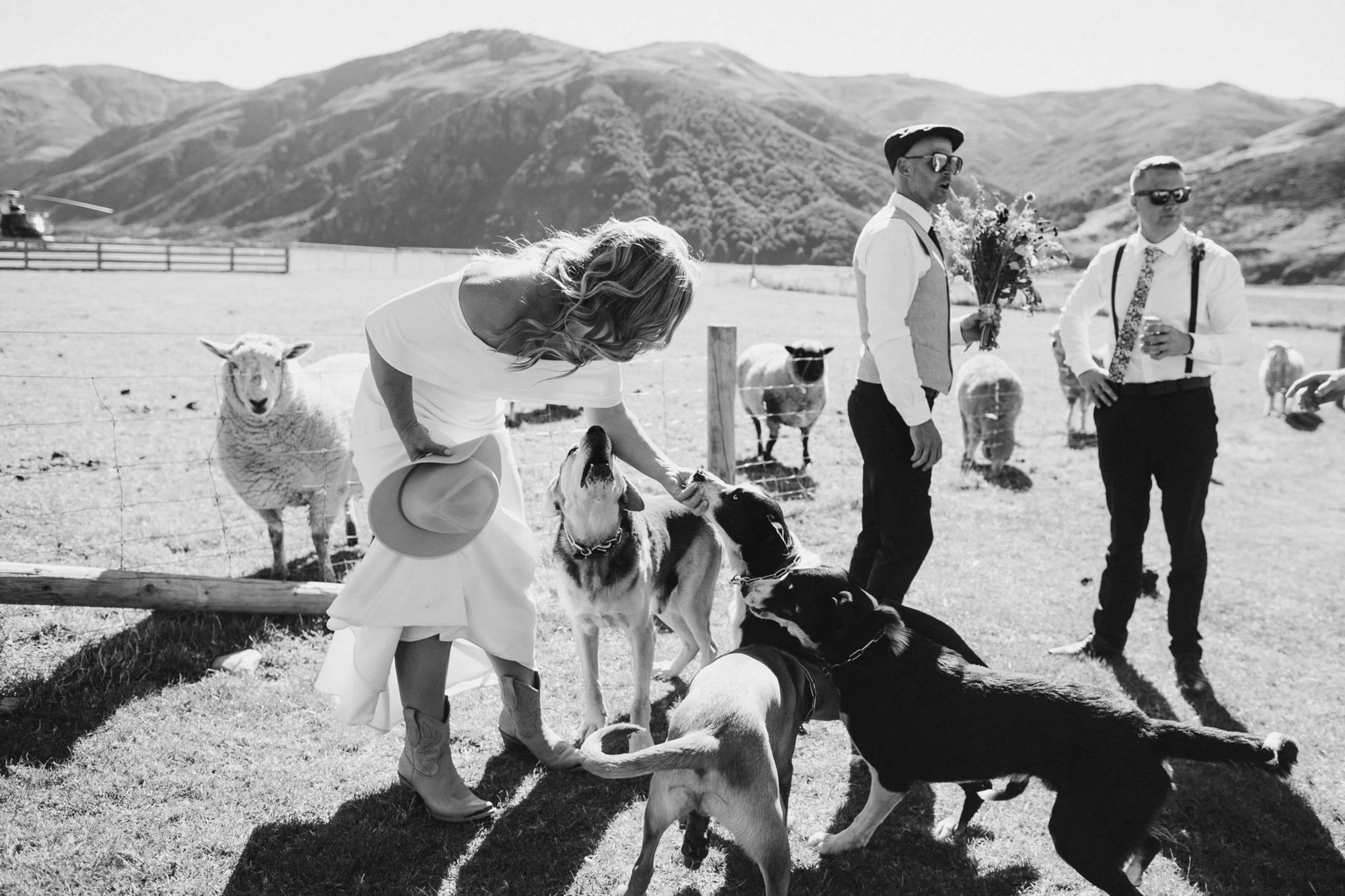
PHOTO SUPPLIED
Roll the clock back to early last year and everything was peachy in Laura’s world. The workshops were fully booked, she was busy planning her wedding to Dan and busloads of overseas tourists were making the 40-minute journey from Queenstown to enjoy farm tours.
But then Covid hit, and Laura lost 80% of her business overnight. “The Contiki buses stopped coming and I had to face the fact that most of what I’d worked for had gone.”
It meant getting rid of her full-time staff member, as well as half of her animals, which friends took in. “I got a job teat-sealing heifers and dairy cows on farms for $19.50 an hour. I sometimes had to start at 2.30am and it was exhausting, but it gave me time to think about what to do next.”
Her idea was to try and put some NCEA credits around her workshops, to formalise her toe-dip into women’s farm education. Then the phone went and it turns out others had the same idea – including the owner and manager of Fairlight Station, a 2000ha historic high-country farm.
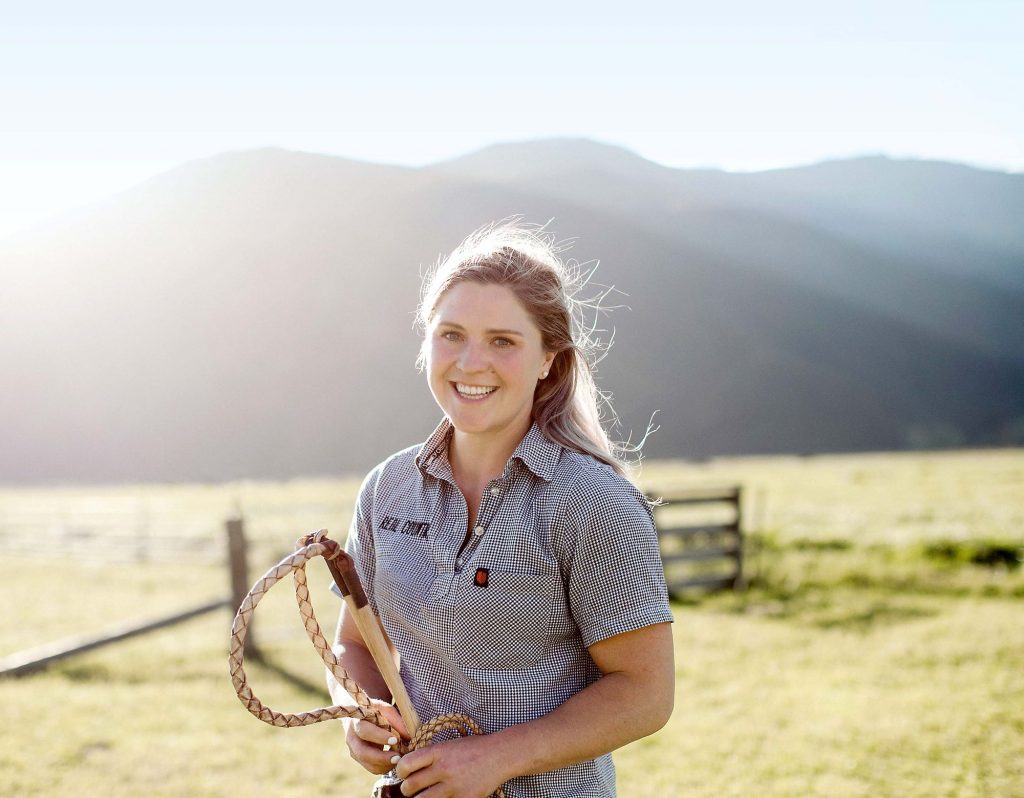
PHOTO BY EMILY ADAMSON
“We brainstormed what a farm training institute might look like, and ended up with The Fairlight Foundation, which offers three women a year-long induction into farm life, including lambing, calving and shearing, as well as other farm skills like fencing. They’ll come out of it with agricultural qualifications.”
Laura is the foundation’s executive director, a role she does alongside her workshops. “I’ve discovered my passion is teaching others and building confidence, so this is the perfect mix for me.”
I’ve discovered my passion is teaching others and building confidence, so this is the perfect mix for me
Although Laura looks at home in her Red Band gumboots and Swanndri, it wasn’t so long ago that her world was all about stilettos and spreadsheets.
She and her younger brother, an orthopaedic surgeon, were born on a sheep and deer farm in Mossburn, a town about halfway between Queenstown and Invercargill. Their parents divorced when Laura was six, a period she describes as unsettling. “It was a happy childhood, but I didn’t have a lot of confidence or dreams for the future.”
Laura stumbled into a health sciences degree at the University of Otago, but spent more time working in the hospitality jobs she loved than studying. “One night, I was serving a drunk doctor who told me I was wasted in hospo, that I should do an MBA – I had to google what an MBA was!”
Always up for a challenge, she enrolled for the year-long master’s degree in business administration, one of the youngest in New Zealand to undertake the qualification. It was a springboard into a career in corporate finance in Wellington.
When her boyfriend at the time, a professional rugby player, was posted to Ireland and then South Africa, Laura tagged along, working in advertising and real estate. “I enjoyed what I was doing, but it always felt like something was missing. I wanted to run my own business helping others.”
The opportunity arose a few years later, when friends asked if she would take a group of women on a pig hunt.
“They’d seen their boyfriends go pig hunting, but didn’t want to embarrass themselves. They asked for help, so I took them on a hunt and gave them advice such as don’t shower or wear perfume before a hunt, because pigs can smell it.”
Laura enjoyed the experience so much that she eventually turned it into Real Country.
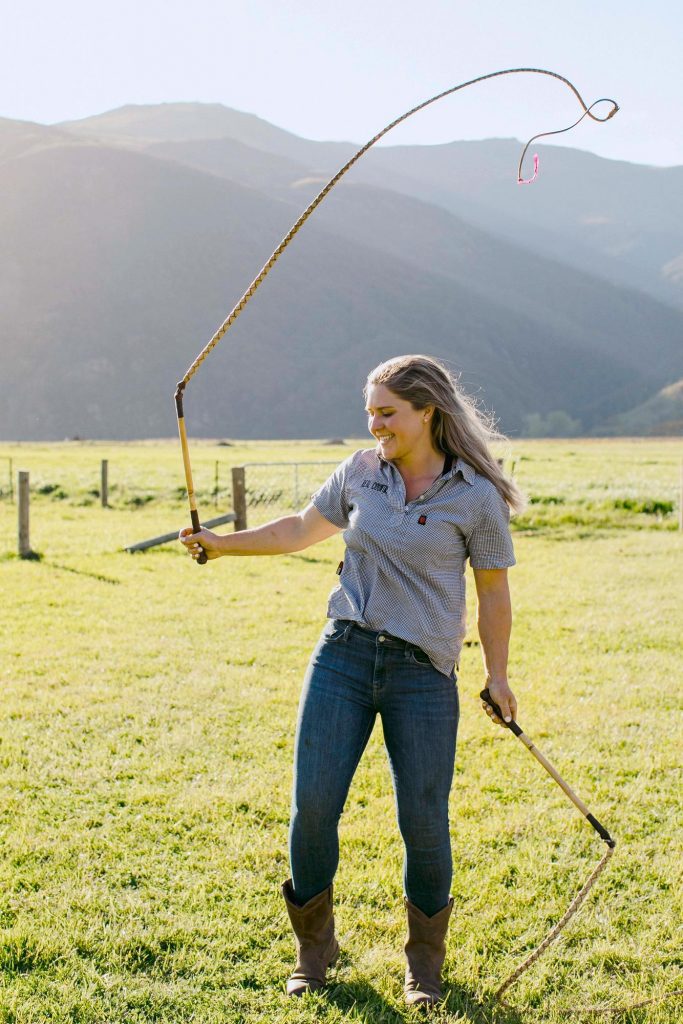
“I often visit schools where I tell young women how important it is to find their passion and follow their dreams. I didn’t know for a long time what my passion was, but I’m so glad I’ve finally found it and am able to share it with others.”

